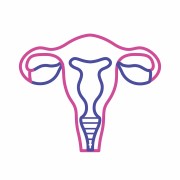Strategies against gynaecological cancers
Gynaecological cancers present varying degrees of difficulty when it comes to early detection and treatment

Statistics from the Singapore Cancer Registry show that the incidence of cervical cancer has consistently declined over the past four decades. Unfortunately both uterine and ovarian cancers have become more frequent among Singaporean women during this same time period.
In order to make sense of these opposite trends, Dr Chia Yin Nin, a gynaecologist at Gleneagles Hospital Singapore, points to the superior understanding of cervical cancer compared to uterine and ovarian malignancies.
“To reduce the incidence of gynaecological cancers we need to know the cause,” she says. “For cervical cancer, we know that it is due to the human papillomavirus (HPV), so we can prevent it.”
Prevention over cure for many gynaecological cancers
According to Dr Chia, HPV is a common sexually transmitted infection affecting one in two Singaporean women. While for many women HPV doesn’t lead to any particular condition, for some it can result in genital warts – small benign growths – or cervical cancer. Vaccination against HPV is effective in protecting women from developing cervical cancer provided that it is administered in the appropriate age group.
“I advise to vaccinate girls from nine years old onwards,” says Dr Chia. “Cervical cancer shouldn't affect women in today's context at all.”
Women are encouraged to receive the vaccine before becoming sexually active otherwise they may have already been exposed to HPV thus making vaccination ineffective.
The vaccine protects against cervical cancer along with other rare malignancies, such as vulva and vaginal cancers, but it doesn’t offer any protection against uterine and ovarian cancers, as they are not caused by HPV.
“One way to decrease the incidence of ovarian and uterine cancers is having more babies,” said Dr Chia. “Another is taking the birth control pill.”
She explains that suppressing monthly ovulation – the regular production of female reproductive cells that usually stops during pregnancy or when taking birth control pills – is believed to decrease the risk of ovarian and uterine cancer in the long run.
“If used continuously for three to five years, the birth control pill can reduce by half a woman's lifetime risk of ovarian or uterine cancer.”
Early screening is vital for successful treatment
Most cervical and uterine cancers can be detected at an early stage with appropriate screening, thereby increasing the odds for successful treatment.
A pap smear is able to pick up pre-cancerous lesions on the cervix that may progress into cancer if left untreated. Once identified, the lesions can be easily removed through surgery.
“I tend to use surgery for early cervix cancer and radiotherapy for advanced cancer or older women who cannot withstand major surgery,” says Dr Chia.
In comparison, uterine cancer is often diagnosed early because it usually causes vaginal bleeding between menstrual periods or after menopause. This acts as an alarm bell for many women encouraging them to go for a check-up. About 80 percent of uterine cancers are diagnosed at the first stage, shares Dr Chia.
Uterine cancer, however, does not respond to radiotherapy. First-line treatment will always be surgery. “Removing the uterus often leads to a complete cure for uterine cancer,” notes Dr Chia.
Unlike uterine cancer, ovarian cancer has no early warning signs that can help diagnose the disease in its early stages.
“Ovarian cancer is a silent killer, meaning that it has no symptoms until an advanced stage,” says Dr Chia.
When common symptoms like abdominal swelling or pain do appear some women attribute them to less serious problems, such as indigestion or intestinal gas.
Ovarian cancer very often requires a two-pronged treatment modality encompassing surgery and chemotherapy, concludes Dr. Chia.
 Dr Chia Yin Nin is a gynaecologist and oncology specialist at Gleneagles Hospital, Singapore. Her specialty interest is in the management and treatment of gynaecological cancers, namely cancers of the cervix, uterus, ovary, fallopian tubes, vulva and peritoneum, pre-cancer gynaecological diseases, and complex pelvic surgeries including open, laparoscopic and robotic surgeries.
Dr Chia Yin Nin is a gynaecologist and oncology specialist at Gleneagles Hospital, Singapore. Her specialty interest is in the management and treatment of gynaecological cancers, namely cancers of the cervix, uterus, ovary, fallopian tubes, vulva and peritoneum, pre-cancer gynaecological diseases, and complex pelvic surgeries including open, laparoscopic and robotic surgeries.
Gleneagles Hospital Singapore
6A Napier Road, Singapore 258500
Tel: (+65) 6735 5000
www.gleneagles.com.sg
Gynaecology and Oncology Specialists
Gleneagles Annexe Block #05-36
6A Napier Road, Singapore 258500
Tel: (+65) 6479 3301
Related Articles
“Tidal wave” of cancer predicted
WHO predicts doubling of annual cancer cases by year 2034
Read moreWhat you need to know about 9 most common cancers
Cancer is the second leading cause of death globally, and is responsible for an estimated 9.6 million deaths in 2018. Globally, about 1 in 6 deaths are caused by cancer.
Read moreWhat is prostate cancer?
Parkway Cancer Centre’s Dr Zee Ying Kiat gives the low-down on prostate cancer
Read moreLatest Articles
Medical Care
Clearing the Fog: Dispelling Common Diabetes Myths in Singapore
Uncover the truths and myths about diabetes with insights from Harmony Thyroid, Endocrinology and Diabetes Centre. Learn about prevention, diagnosis, and management strategies for diabetes in Singapore. Get expert guidance from Senior Consultant Endocrinologist Dr. Vikram Sonawane to navigate your diabetes journey effectively.
Read moreMedical Care
Achieving Swift Recovery: Enhanced Recovery (ERAS) Direct Anterior Approach Total Hip Replacement
Consider total hip replacement with Alps Orthopaedic Centre's ERAS Direct Anterior Approach for faster recovery and reduced hospital stays. Learn about Dr. Jerry Chen's expertise in Singapore.
Read moreMedical Care
Enhanced Recovery (ERAS) Total Knee Replacement
Discover how Alps Orthopaedic Centre's Enhanced Recovery After Surgery (ERAS) approach transforms total knee replacement into a day surgery, offering faster recovery, less pain, and reduced hospital bills. Learn about Dr. Jerry Chen's expertise and schedule your appointment in Singapore.
Read more